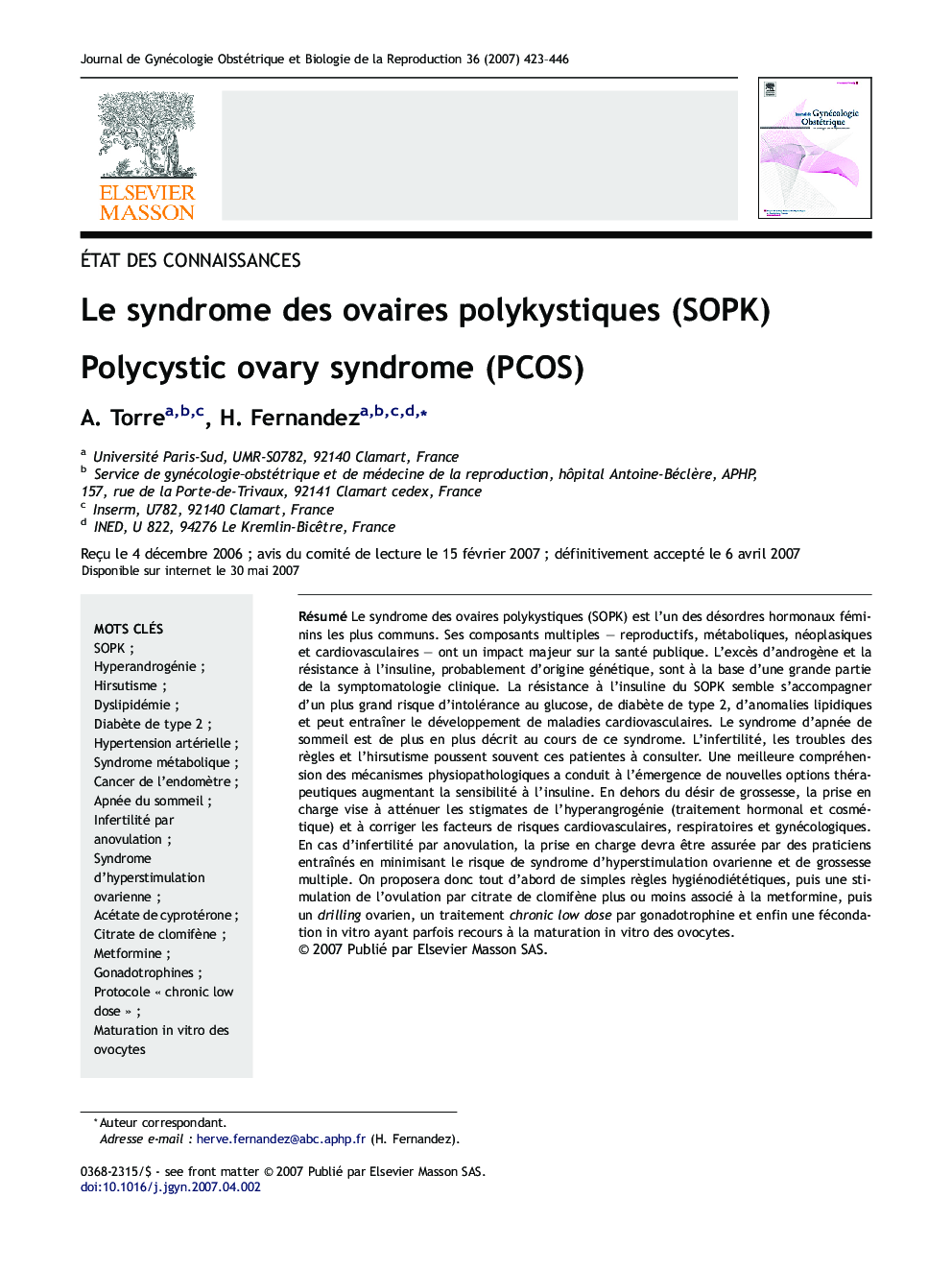| Article ID | Journal | Published Year | Pages | File Type |
|---|---|---|---|---|
| 3274009 | Journal de Gynécologie Obstétrique et Biologie de la Reproduction | 2007 | 24 Pages |
Abstract
Polycystic ovaries syndrome (PCOS) is one of the most common female hormonal disorders. Its multiple components - reproductive, metabolic, neoplasic and cardiovascular - have a major impact on the public health. Androgen excess and resistance to insulin, probably from genetic origin, are responsible for most of the clinical symptomatology. Resistance to insulin seems to be accompanied by a greater risk of glucose intolerance, type 2 diabetes, lipidic anomalies and can involve the development of cardiovascular diseases. In addition, sleep apnea syndrome is more progressively described in PCOS. Infertility, menses disorders and hirsutism often push these patients to consult their physician. A better understanding of the physiopathological mechanisms led to the emergence of new therapeutic options increasing the sensitivity to insulin. Besides the pregnancy wishes, cares aim to attenuate the marks of the hyper-androgenism (hormonal treatment and cosmetic) and to correct cardiovascular, respiratory and gynaecological risk factors. In case of infertility by anovulation, cares must be performed by trained experts to minimize the risk of ovarian hyper-stimulation syndrome and multiple pregnancies. A gradation from loose weight to clomiphene citrate ovulation induction, ovarian drilling, low dose gonadotropin, in vitro fertilisation, or in vitro maturation of oocytes should bring back good reproduction potential.
Keywords
Syndrome d'hyperstimulation ovarienneCancer de l'endomètreHyperandrogéniedyslipidémieSOPKSleep apneaapnée du sommeilDyslipidemiaCyproterone acetateType 2 diabetesdiabète de type 2Endometrial cancerSyndrome métaboliqueMetabolic syndromeHypertension artériellearterial hypertensionmetformineHirsutismeHirsutismclomiphene citrateGonadotrophines
Related Topics
Health Sciences
Medicine and Dentistry
Endocrinology, Diabetes and Metabolism
Authors
A. Torre, H. Fernandez,
